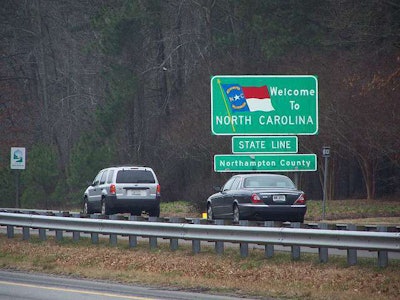
Called “Build NC,” the program allows the N.C. Department of Transportation to borrow against debt capacity in the state’s Highway Trust Fund. The NCDOT can sell bonds based on the debt capacity. The agency can request that up to $300 million in bonds be sold per year for a total of $3 billion over 10 years. The bond issuance does not require a vote of the citizens. The bonds would be repaid out of the same Highway Trust Fund, which includes state gas and vehicle sales taxes and Division of Motor Vehicle fees. NCDOT has up to 10 years to use the new bond program.
The program can only be used for certain projects. They are regional road projects that have been sought by local governments as important to their communities, and they do not qualify for federal funding. The agency says it will use data to prioritize the projects to be funded under the program.
NCDOT Secretary Jim Trogdon says Build NC will speed up funding for these projects, as well as provide stability in transportation funding over the next decade.
“There are immediate benefits to Build NC’s passage,” Trogdon says. “First, private sector businesses across the state that build our roadways will see a stable industry over the next few years, allowing them to grow capacity to meet market demand with less risk. Second, the critical infrastructure communities across the state have been waiting for will be delivered sooner than they would be if Build NC was not available.”
The bill has passed the state legislature and has been signed by Governor Roy Cooper.
Its passage was hailed by the Carolinas Associated General Contractors, which said the measure will result in tens of thousands of jobs and give legislators more time to come up with new transportation funding sources as transportation demands continue to grow.
Editor’s note: This story has been updated following Governor Roy Cooper’s signature of the legislation.










